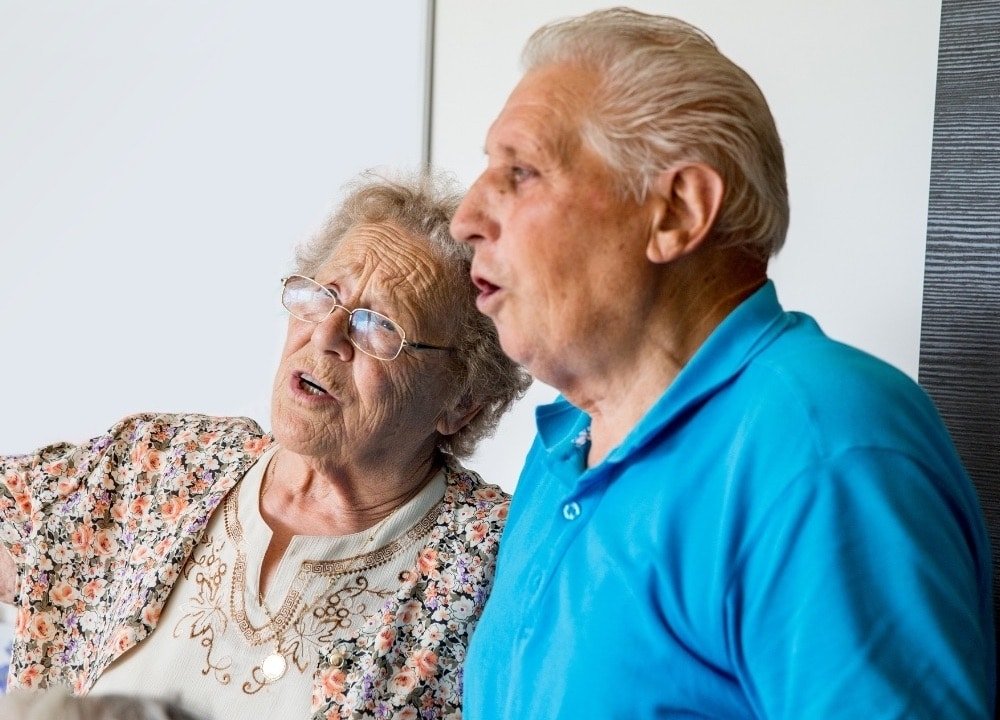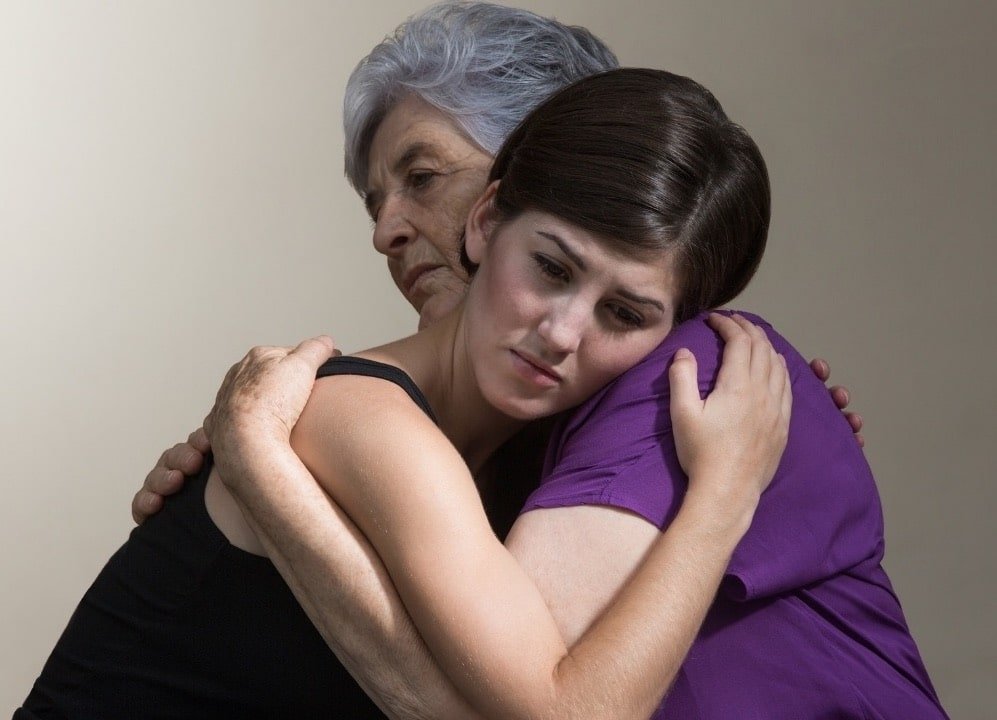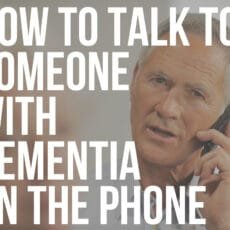Communicating with a person who has dementia may be confusing and challenging at times leading to the question: do dementia patients know what they are saying?
Most of the time especially in the later stages of the disease, they may not know what they are saying.
This is because communication becomes more difficult for persons with dementia as the illness progresses.
After all, it affects sections of the brain that are responsible for controlling memory and language.
As dementia continues to destroy brain cells, most people experience a symptom referred to as aphasia.
This can be described as losing the ability to speak as well as understand speech.
Several factors may affect an individual’s ability to communicate “normally” such as:
- Memory Loss: inability to remember events that have happened or topics to discuss
- Challenges finding the right words or phrases to say
- Difficulties understanding language
- Sight or hearing impairment
- Distractions; for instance, being distracted by the environment or finding it hard to concentrate on a single topic
- Hallucinations
Contents
Coping with Communication Challenges

In regards to the query do patients with dementia know what they are saying, it is important to learn some communication strategies to adapt when communicating with individuals who seem not to know what they are saying.
This is because persons with dementia are bound to have communication hiccups which can lead to multiple misunderstandings.
For instance, a person can point to a computer and call it a picture or say that they want to eat worms referring to their favorite food only that they cannot voice out the proper words.
Some of the ways to deal with communication issues include:
Speaking the First Language

Many people with dementia usually go back to their first language as they lose their ability of speech.
If a person grew up speaking a certain language, get ready to speak the language at some point.
Minimize Distractions
When talking to a person with the progressive illness, try and create a calm and quiet environment.
It is best to sit face-to-face with the person you are talking to.
Minimize distractions like noise from the TV or radio or any sights that may be causing distractions.
Sing Along
Most individuals with dementia will remember songs because melodies and music are stored in the parts of the brain that the disease does not affect.

Singing, thus, is one of the ways to connect with the affected individuals. An alternative to singing is just relaxing and listening to the person’s favorite tunes.
The Right Approach
People with dementia generally do not like surprises. If they do not see other people coming, it might elicit aggression or anxiety.
It is, therefore, advisable to always approach them from the front which gives the affected person time to process an individual’s arrival.
It is also recommended that a person identifies themselves before engaging in conversation.
This is done to create awareness and attention reminding the affected person of who their loved ones are.
Have a Caring Attitude
when seeking answers to the query do patients with dementia know what they are saying it is vital to understand that individuals retain their emotions and feelings even when they do not understand what is being said.
For this reason, it is crucial to always maintain the self-esteem and dignity of persons with dementia when talking to them.
Allow plenty of time for responses and remain flexible. Avoid arguing or becoming controlling even when the person with the illness is in the wrong.
Communicating without Words
At times, words are not sufficient when communicating with a person who has dementia.
Body language, touch, hand gestures, eye contact, and facial expressions are other communication options available when words are not enough.

For instance, when asking a person what they want to eat, pointing to the refrigerator can help reinforce the message.
Nodding the head indicates a person agrees while shaking the head shows an individual is not in agreement.
A hug or warm smile can also convey the message you want to pass across strongly.
Remember to only use touch when it is appropriate to grab the person’s attention while communicating affection and warmth.
Understanding the Disease Makes People Say Harmful Things
It is common for persons with the disease to use hurtful words, make mean comments, or accuse their loved ones of terrible untrue things.
While it may be devastating to hear such things, it is important to remember that the affected individual is not saying these bad things on purpose but it is the disease that is causing them to say such things.
Closing Remarks
When a person with dementia loses their ability to communicate it can be hard and frustrating not only to the affected individual but their families, friends, and carers as well.
When this happens, it is important for loved ones are carers to change the way they communicate with the affected person.
Keep in mind that communication is made up of three parts:
1. 55% Body Language: This is the message that people send with their gestures, facial expression, and posture.
2. 38%: It represents the pitch and tone of the voice.
3. 7%: these are the words people use.
The statistics above show the importance of how carers and families should present themselves with people who have dementia.
It is easy for people with dementia to pick up negative body language like raised eyebrows and sighs.







